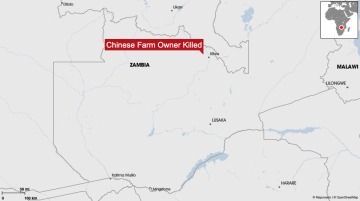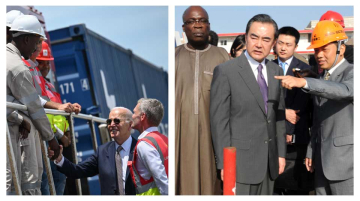
In what has become one of the most widely followed cases of a Chinese citizen murdered in Africa to date, the killing of 57-year-old Chinese farm owner Ms. Shi in Zambia has sparked nationwide outrage and soul-searching across China. Unlike previous cases that circulated mainly within Chinese-African community circles, this incident captured the attention of the broader Chinese public, partly because Ms. Shi was seen as a “perfect victim”: an educated, idealistic, and kind-hearted entrepreneur from Hubei province, whose work in Africa focused not on resource extraction, but on sustainable farming that benefited local communities.
Ms. Shi had been missing since July 2. On July 31, her decomposed body was discovered buried near Livingstone International Airport in Zambia. Police identified her suspected killer as her trusted Zambian farm manager, Andrew Pumulo, who has since died while fleeing authorities.
According to police, Andrew jumped into the Zambezi River while attempting to escape into Namibia on August 3 and drowned.
The brutal case has ignited heated debate in Chinese social media, where commentators see it as more than just a tragic murder. One commentator framed the case as a fatal clash between two irreconcilable worldviews. In this narrative, Ms. Shi, as a “builder,” embodied the values of diligence, mutual prosperity, and trust, having treated her employees like family.
Her killer, by contrast, is seen as living in a “predatory” survival logic shaped by poverty, inequality, and the breakdown of legal and moral order.
Why Is This Important?
This case matters because it shatters the romanticized view many in China still hold, that Chinese investment and presence in Africa is purely philanthropic, a noble mission to help developing countries prosper.
Chinese netizens and media commentators have drawn attention to the symbolism and tragedy of the case, calling it a sobering reminder of the risks faced by Chinese citizens, especially those investing in the Global South with idealistic hopes of building bridges through development.











